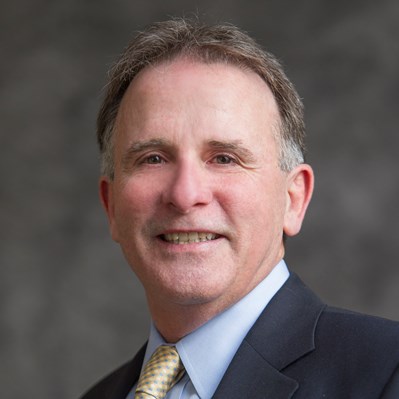
Vice President of Financial Aid, Western Governors University
Salt Lake City, Utah
Office Representing: Financial Aid
Bob Collins, the vice president for financial aid at Western Governors University (WGU), manages and oversees all of the university's student financial aid programs, including active duty military and veterans benefits, as well as state and federal legislative advocacy efforts and federal public policy and regulatory development. WGU, an online, nonprofit university founded 20 years ago by 19 governors, is the pioneer in competency-based education, providing high-quality affordable higher education to busy adults, independent of time or place. Its core mission is to improve the quality of and expand access to postsecondary education, and to optimize student experience and success. Current WGU enrollment today is more than 90,000 students with nearly 100,000 graduates in all 50 states.
How did you first get interested in or involved in higher education issues?
"Since January 1981, I have been very fortunate to spend my entire professional career in higher education, joining WGU in October 2012 as the vice president of financial aid," Collins said. "In the late 1990's, I was the acting director of financial aid at the University of Colorado at Boulder and was a consultant for WGU in the very early stages - before the first students enrolled. WGU has a thriving culture of continuous improvement, focused on ensuring that all decisions and efforts enhance the student experience and improve the lives of students and their families."
Why did you apply to be a part of the Higher Education Committee of 50? What drew you to this opportunity?
"Reauthorization of the Higher Education Act (HEA) should aim to reinvigorate the promise of higher education for the 21st Century," Collins said. "The HEA should broaden its support for higher learning innovation that helps Americans throughout their lifetimes and expands their opportunities to lead sustaining and productive lives. As such, WGU supports policy and legislation that encourages and supports innovation in advancing quality and relevancy of learning and its path to opportunity, improving access and affordability, optimizing student outcomes, and improving transparency and accountability for both students and institutions. The [Higher Education Committee of 50] thought leadership has the ability to influence public policy in the HEA reauthorization."
Leadership roles with professional associations:
Membership(s) held with other professional associations: